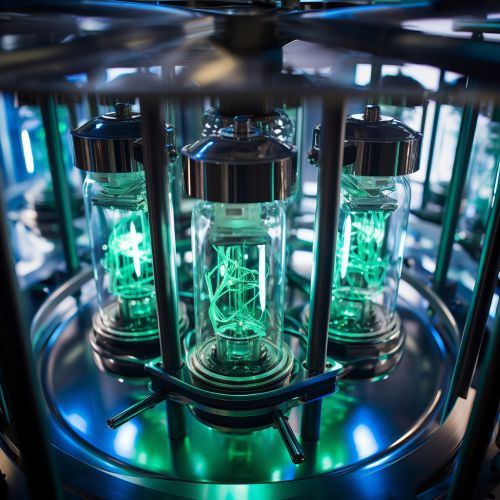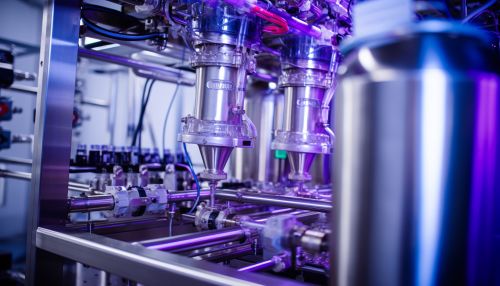Bioconversion
Introduction
Bioconversion, also known as biotransformation, is a process that uses living organisms or their components (such as enzymes) to alter organic compounds. This process is a key component of biotechnological applications, including the production of biofuels, pharmaceuticals, and specialty chemicals.
Principles of Bioconversion
Bioconversion processes are based on the metabolic pathways of microorganisms. These pathways can be harnessed to convert a wide range of substrates into desired products. The efficiency of bioconversion processes can be influenced by several factors, including the type of organism used, the substrate, and the conditions of the process.


Types of Bioconversion Processes
There are several types of bioconversion processes, each with its own unique characteristics and applications. These include:
Fermentation
Fermentation is a bioconversion process that involves the use of microorganisms to convert organic materials into alcohol, gases, or acids. This process is commonly used in the production of beer, wine, and other alcoholic beverages, as well as in the production of biofuels.
Enzymatic Conversion
Enzymatic conversion involves the use of enzymes to catalyze chemical reactions. This process is often used in the production of pharmaceuticals and specialty chemicals.
Anaerobic Digestion
Anaerobic digestion is a bioconversion process that involves the breakdown of organic materials by microorganisms in the absence of oxygen. This process is commonly used in waste management and the production of biofuels.
Applications of Bioconversion
Bioconversion processes have a wide range of applications in various industries. These include:
Biofuel Production
Bioconversion processes are widely used in the production of biofuels. For example, the fermentation of sugars by yeast can produce ethanol, a type of biofuel. Similarly, the anaerobic digestion of organic waste materials can produce biogas, another type of biofuel.
Pharmaceutical Industry
In the pharmaceutical industry, bioconversion processes are used to produce a variety of drugs and therapeutic agents. For example, the enzymatic conversion of penicillin G to penicillin V is a key step in the production of this important antibiotic.
Food and Beverage Industry
Bioconversion processes are also used in the food and beverage industry. For example, the fermentation of grapes by yeast is a key step in the production of wine. Similarly, the fermentation of milk by bacteria is used to produce yogurt and other dairy products.
Challenges and Future Directions
Despite their many advantages, bioconversion processes also face several challenges. These include the need for efficient and cost-effective processes, the need to reduce the environmental impact of these processes, and the need to develop new and improved bioconversion technologies.
Looking ahead, the field of bioconversion is likely to continue to evolve and expand. This will be driven by advances in biotechnology, the growing demand for sustainable and renewable resources, and the ongoing need to address global challenges such as climate change and resource scarcity.
